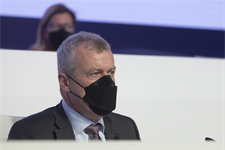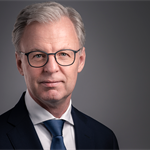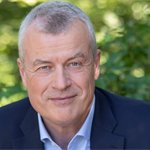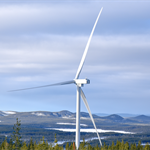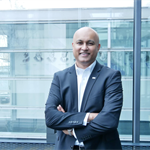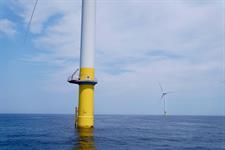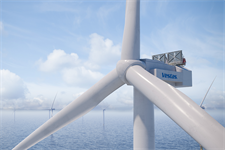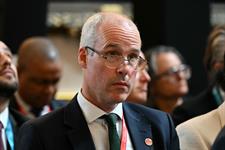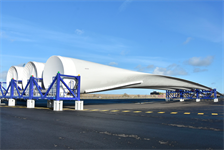New Siemens Gamesa CEO sees onshore wind as key to success
Energy Disrupter
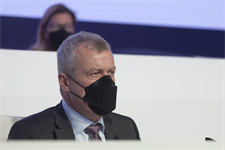
The new CEO of Siemens Gamesa Renewable Energy (SGRE) Jochen Eickholt sees onshore wind – and its potential for unlocking long-term value creation – as vital to the company.
The sector, which has been a weak point for the turbine manufacturer in recent years, offers “huge growth opportunities globally” and can help the company boost its service business, Eickholt said.
He was speaking at the company’s annual shareholder meeting in Bilbao, Spain less than a month into his new role.
Eickholt, a board member at SGRE’s majority owner Siemens Energy, replaced Andreas Nauen as CEO amid supply chain and cost challenges that affected its onshore business most acutely.
The new CEO sees the cost pressures and supply chain disruptions buffeting the wind industry as “partial and temporary”, and added that Siemens Gamesa needs to “focus on the things that matter, empower the teams to move ahead decisively, and introduce operational excellence and a relentless focus on execution”.
Siemens Gamesa has already raised the prices of its products and services to mitigate the impact of these higher costs, Eickholt noted. The company expects higher energy prices, higher commodity prices and higher transportation costs to continue throughout its fiscal year, he added.
‘Fix it and we fix onshore’
Eickholt said that Siemens Gamesa needs to correct unspecified faults with its 5.X onshore wind turbine platform and begin series production as fast as possible.
“Attending to the issues of the 5.X is one of my most urgent priorities,” he added. “If we can fix it, we can fix onshore.”
Eickholt added: “One of our key priorities is simplifying our activities wherever we can and making sure that we have processes in place that enable us to develop and bring to market the products our customers need in the right time, the right way, competitively and profitably.”
Energy transition
He said that he sees good prospects for the wind industry as it is crucial to the energy transition.
Eickholt noted that policymakers have “placed their faith in wind energy to enable reductions in carbon emission that keep the Paris Agreement target of 1.5C of warming within reach”. He added that many governments around the world are also now revisiting renewable energy targets amid a newfound emphasis on energy security, following Russia’s invasion of Ukraine.
“We need to ensure that the right commercial and regulatory environment is in place to facilitate the huge number of installations required,” he said. “These policies must also support the case for the investment necessary to achieve the goals (of decarbonisation).”
Offshore and service
Eickholt said that he aims to retain Siemens Gamesa’s offshore leadership – a position confirmed this week in BloombergNEF’s report of turbine makers’ market shares.
He added that Siemens Gamesa is setting its sights globally and highlighted the company’s geographically diverse order backlog, as well as investments in manufacturing facilities in the UK, the US and Taiwan.
Meanwhile, he added that the company’s service segment continues to generate the highest margins of the company’s three business units.
Eickholt sees good prospects for service due to an “increased aftermarket focus”, Siemens Gamesa’s multi-brand fleet approach, and its use of technology, including smart sensors, advanced analytics and drones.

